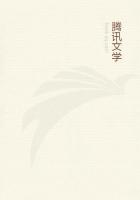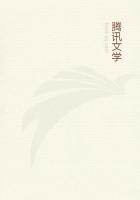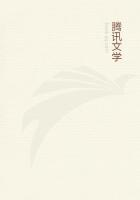(January 1843)
Diary and Letters of Madame D'Arblay.Five vols.8vo.
London: 1842.
THOUGH the world saw and heard little of Madame D'Arblay during the last forty years of her life, and though that little did not add to her fame, there were thousands, we believe, who felt a singular emotion when they learned that she was no longer among us.The news of her death carried the minds of men back at one leap over two generations, to the time when her first literary triumphs were won.All those whom we had been accustomed to revere as intellectual patriarchs seemed children when compared with her; for Burke had sate up all night to read her writings, and Johnson had pronounced her superior to Fielding, when Rogers was still a schoolboy, and Southey still in petticoats.Yet more strange did it seem that we should just have lost one whose name had been widely celebrated before anybody had heard of some illustrious men, who, twenty, thirty, or forty years ago, were, after a long and splendid career, borne with honour to the grave.
Yet so it was.Frances Burney was at the height of fame and popularity before Cowper had published his first volume, before Porson had gone up to college, before Pitt had taken his seat in the House of Commons, before the voice of Erskine had been once heard in Westminster Hall.Since the appearance of her first work, sixty-two years had passed; and this interval had been crowded, not only with political, but also with intellectual revolutions.Thousands of reputations had, during that period, sprung up, bloomed, withered, and disappeared.New kinds of composition had come into fashion, had gone out of fashion, had been derided, had been forgotten.The fooleries of Della Crusca, and the fooleries of Kotzebue, had for a time bewitched the multitude, and had left no trace behind them; nor had misdirected genius been able to save from decay the once flourishing schools of Godwin, of Darwin, and of Radcliffe.Many books, written for temporary effect, had run through six or seven editions, and had then been gathered to the novels of Afra Behn, and the epic poems of Sir Richard Blackmore.Yet the early works of Madame D'Arblay, in spite of the lapse of years, in spite of the change of manners, in spite of the popularity deservedly obtained by some of her rivals, continued to hold a high place in the public esteem.She lived to be a classic.Time set on her fame, before she went hence, that seal which is seldom set except on the fame of the departed.Like Sir Condy Rackrent in the tale, she survived her own wake, and overheard the judgment of posterity.
Having always felt a warm and sincere, though not a blind admiration for her talents, we rejoiced to learn that her Diary was about to be made public.Our hopes, it is true, were not unmixed with fears.We could not forget the fate of the Memoirs of Dr.Burney, which were published ten years ago.That unfortunate book contained much that was curious and interesting.
Yet it was received with a cry of disgust, and was speedily consigned to oblivion.The truth is, that it deserved its doom.
It was written in Madame D'Arblay's later style, the worst style that has ever been known among men.No genius, no information, could save from proscription a book so written.We, therefore, opened the Diary with no small anxiety, trembling lest we should light upon some of that peculiar rhetoric which deforms almost every page of the Memoirs, and which it is impossible to read without a sensation made up of mirth, shame, and loathing.We soon, however, discovered to our great delight that this Diary was kept before Madame D'Arblay became eloquent.It is, for the most part, written in her earliest and best manner, in true woman's English, clear, natural, and lively.The two works are lying side by side before us; and we never turn from the Memoirs to the Diary without a sense of relief.The difference is as great as the difference between the atmosphere of a perfumer's shop, fetid with lavender water and jasmine soap, and the air of a heath on a fine morning in May.Both works ought to be consulted by every person who wishes to be well acquainted with the history of our literature and our manners.But to read the Diary is a pleasure; to read the Memoirs will always be a task.
We may, perhaps, afford some harmless amusement to our readers, if we attempt, with the help of these two books, to give them an account of the most important years of Madame D'Arblay's life.
She was descended from a family which bore the name of Macburney, and which, though probably of Irish origin, had been long settled in Shropshire, and was possessed of considerable estates in that county.Unhappily, many years before her birth, the Macburneys began, as if of set purpose and in a spirit of determined rivalry, to expose and ruin themselves.The heir apparent, Mr.
James Macburney, offended his father by ****** a runaway match with an actress from Goodman's Fields.The old gentleman could devise no more judicious mode of wreaking vengeance on his undutiful boy than by marrying the cook.The cook gave birth to a son named Joseph, who succeeded to all the lands of the family, while James was cut off with a shilling.The favourite son, however, was so extravagant, that he soon became as poor as his disinherited brother.Both were forced to earn their bread by their labour.Joseph turned dancing-master, and settled in Norfolk.James struck off the Mac from the beginning of his name, and set up as a portrait painter at Chester.Here he had a son named Charles, well known as the author of the History of Music, and as the father of two remarkable children, of a son distinguished by learning, and of a daughter still more honourably distinguished by genius.















